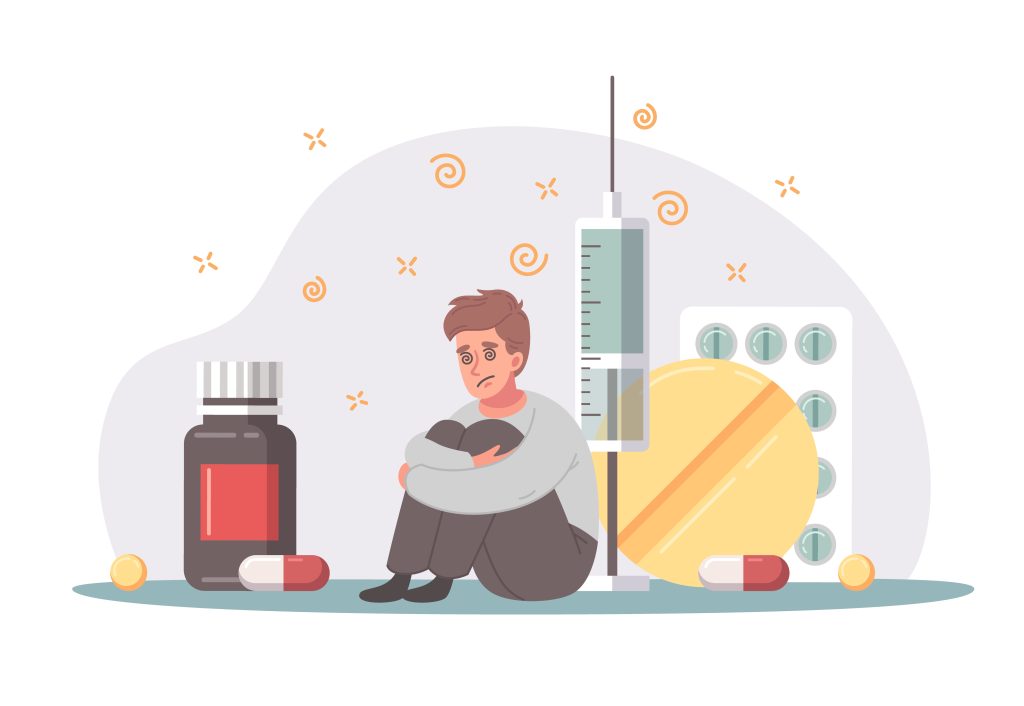Art of living's program for substance user ( rehab program)
Substance use disorder treatment or rehabilitation, refers to a structured program designed to help individuals overcome substance abuse or substance use disorder. It involves various interventions and therapies aimed at addressing the physical, psychological and social aspects of addiction.

What is Substance Use Disorder (WPSU) Treatment at Grace Wellness?
Substance use disorder treatment is something which is a treatment for dealing with drugs, alcohol and tobacco . It is intended to remove the physiological effects of the addictive substances The goal of this treatment is to assist individuals in achieving and maintaining a substance-free life while improving their overall well-being.
A de-addiction program, also known as substance use disorder treatment or rehabilitation program, is a structured and comprehensive approach to helping individuals overcome substance abuse or substance use disorder. The program aims to address the physical, psychological and social aspects of substance use disorder and support individuals in achieving and maintaining a substance-free life. Here are some key features and components typically found in de-addiction programs:
-
Assessment and Evaluation: Upon admission to a de-addiction program, individuals undergo a thorough assessment to determine the nature and severity of their substance use, assess any co-occurring mental health issues and identify individual needs and goals.
-
Detoxification: For individuals with substance dependencies, detoxification may be the first step of the program. Under medical supervision, the process helps individuals safely manage withdrawal symptoms and cleanse their bodies from the substance.
-
Individualized Treatment Plan: Based on the assessment results, an individualized treatment plan is developed to address the specific needs and challenges of each person. The plan may include a combination of therapies, interventions, and support services tailored to the individual’s circumstances.
-
Counseling and Therapy: De-addiction programs commonly include individual counseling sessions with trained therapists or substance use disorder counselors. These sessions provide a safe and confidential space for individuals to explore the underlying causes of substance use disorder, work through emotional challenges, develop coping skills, and set goals for recovery.
-
Group Therapy: Group therapy sessions are a valuable component of de-addiction programs. They provide opportunities for individuals to connect with peers facing similar challenges, share experiences, offer support, and learn from one another. Group therapy promotes a sense of community, empathy, and accountability.
-
Holistic Approach: De-addiction programs take a holistic approach to address the physical, psychological, and social aspects of substance use disorder.
-
Individualized Treatment: Each person’s substance use disorder is unique, and de-addiction programs aim to tailor treatment plans to meet individual needs.
-
Professional Assessment and Evaluation: De-addiction programs begin with a thorough assessment and evaluation process.
-
Evidence-Based Therapies: De-addiction programs often utilize evidence-based therapies that have been proven effective in treating addiction.
-
Medical Support: De-addiction programs provide medical support, especially during the detoxification phase. Medical professionals monitor withdrawal symptoms, manage any medical complications, and provide necessary medications to ensure the safety and comfort of individuals going through withdrawal.
